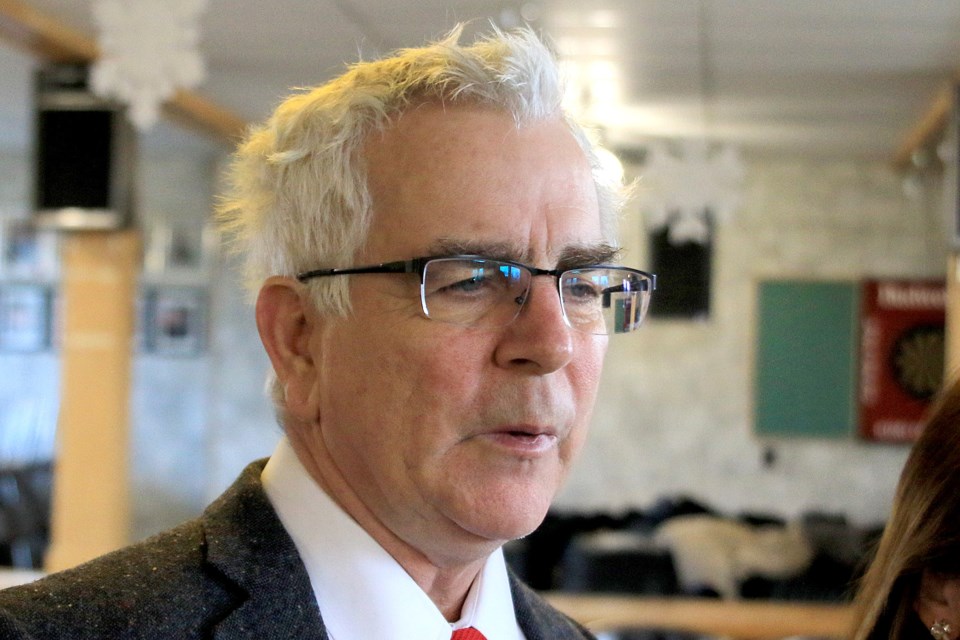The war in Ukraine has been nothing short of devastating and has caused widespread destruction and a tragic loss of life.
While Ukrainian forces have continued to show incredible resilience in the face of Russian aggression, the path to lasting and durable peace after the war is not clear. Russia and Ukraine must agree with, and have confidence in, the eventual peace agreement.
Recently, French President Emmanuel Macron and British Prime Minister Keir Starmer have called for the deployment of European peacekeepers to be stationed in Ukraine as a part of that peace agreement. Canada ought to make a similar commitment.
Macron has long championed the idea of sending European troops to act as peacekeepers, particularly as the European Union looks to support Ukraine’s sovereignty and territorial integrity. Starmer has said that he was "ready and willing" to send British troops in support. The argument for peacekeepers is simple: for any peace agreement to be truly sustainable, Ukraine must have confidence that Russia will not re-arm and resume its attacks once its military forces have been rebuilt.
Any peace agreement that would be acceptable to the Ukrainians must include measures that would give them a reasonable assurance that Russia will not simply re-arm and take another run at them in a few years. Ideally, this assurance would mean membership in NATO, but this does not appear on the table at present.
A sizeable European peacekeeping force, presumably to be stationed along the border, would seem to be an acceptable alternative. But this is not only a European issue—Canada must decide whether it is ready to join these efforts, alongside Britain, France, and other allies. We have a proud tradition of peacekeeping around the world, and a close relationship with our Ukrainian allies.
While I have not served in our Forces, my role on the Defence Committee has provided me with some insight from our Generals and other experts to understand that, of course, the challenges to peacekeeping in Ukraine are immense.
The logistics, risks, and the potential for escalation are all valid concerns. As someone who has spent much of their life in high-risk professions—in emergency medicine and at times doing surgery—I understand that the time to act is when the cost of inaction outweighs the risks of action. Yes, the stakes of deploying troops would be high, but the risks of letting this war go on are far higher. The risk to Ukraine, to Europe, and yes, even the risk to Canada is heightened when the world stands by and does not secure a peace in Ukraine.
Allowing this war to drag on indefinitely is not only a threat to Ukraine—it is a threat to global stability. The longer the war goes on, the greater the likelihood of further destabilization in Europe and of potential spillover effects into other regions.
The aftershocks of the war in Ukraine are being felt around the world, including here in Canada. The rules-based international order continues to be under threat from the proliferation of authoritarian regimes seeking to alter the global balance of power.
The very fabric of international law, which has maintained relative peace since World War II, is being challenged.
It is time for Canada to reaffirm its commitment to this global order. We have watched for the past three years as our friends in Ukraine have fought the Russians alone, and we have seen the geopolitical landscape destabilized by the conflict.
Let us join France and Britain by committing Canadian troops, and in so doing, let us start putting that international legal order back together again.
Let us reinforce our friendship and commitments to Europe at a pivotal time for our own country and let us align ourselves with the two countries with which we share so much history: France and Britain.
We should not wait to act. Canada can play an important role in shaping the future of Europe and the world. It’s time to answer the call.
Sincerely,
Marcus Powlowski
Thunder Bay-Rainy River MP


